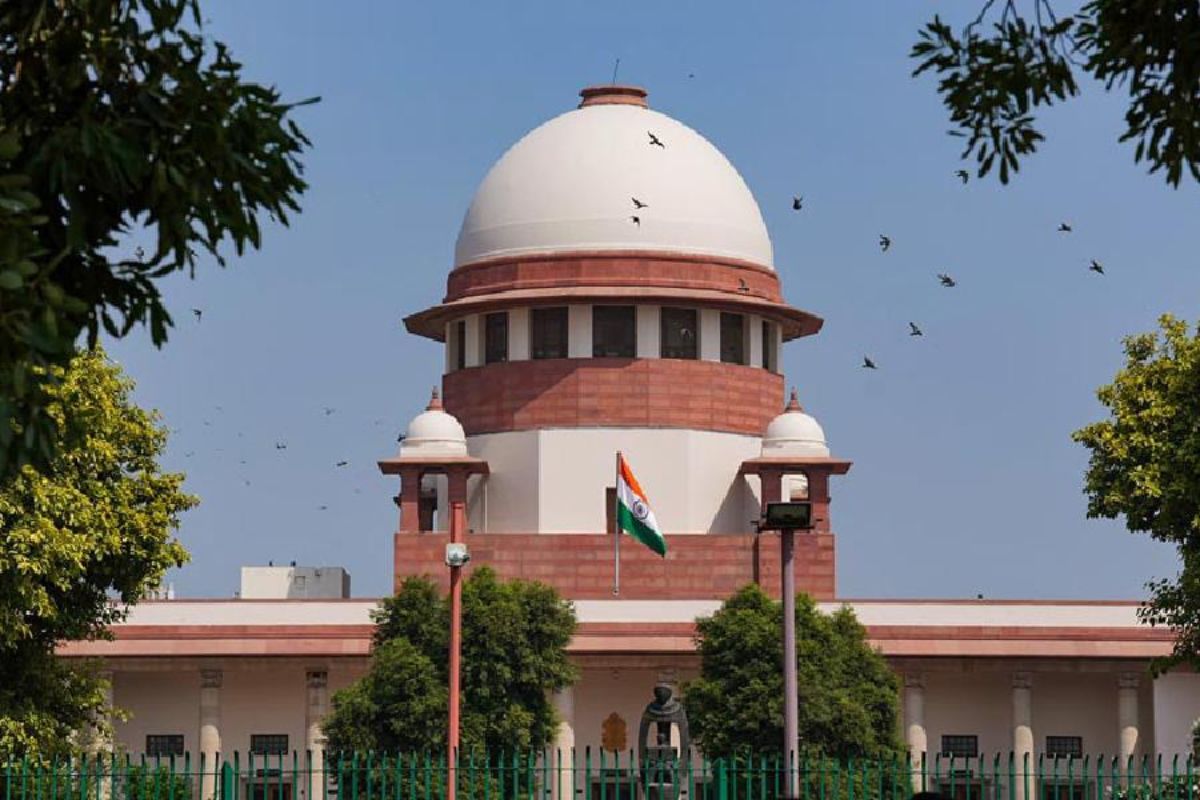Shiv Khera approaches SC, seeks publicity to NOTA as fictional candidate
A bench headed by Chief Justice DY Chandrachud issued the notice to the poll panel.
The apex court said the common compilation in the matter prepared by the nodal counsels needs to be streamlined.

SC quashes proceedings against Karnataka Dy CM Shivakumar in PMLA case
The Supreme Court on Wednesday posted for October 17, 2023, a batch of petitions challenging the constitutional validity of Section 6A of the Citizenship Act that was incorporated by an amendment in 1985 in pursuance to the Assam accord for granting citizenship to the migrants from Bangladesh who had crossed over to India before March 25, 1971.
The Assam Accord was signed between the Central government headed by late prime minister Rajiv Gandhi and the All Assam Students Union (AASU).
A five-judge Constitution bench comprising Chief Justice D Y Chandrachud, Justice A S Bopanna, Justice M M. Sundresh, Justice J B Pardiwala, and Justice Manoj Misra said the common compilation in the matter prepared by the nodal counsels needs to be streamlined.
Advertisement
“The nodal counsel will ensure that compilation is in the same format as the SOP. The soft copy of the common compilation shall be prepared in two weeks. Written submissions shall be filed by October 10,” the bench said.
The bench said the cause title of the proceedings shall be, “In Re: Section 6A of the Citizenship Act, 1955.”
Earlier on January 10, 2023, a five-judge constriction bench comprising Chief Justice Chandrachud, Justice M R Shah, Justice Krishna Murari, Justice Hima Kohli and Justice Pamidighantam Sri Narasimha had said that the adjudication of the issue would be limited to “Whether Section 6A of the Citizenship Act 1955 suffers from any constitutional infirmity.”
Though Solicitor General Tushar Mehta wanted the hearing to commence after the Diwali holidays, Chief Justice Chandrachud said that the hearing would start on October 17.
Referring to the sole issue framed by the earlier constitution bench, senior advocate Indira Jaising today told the bench that the common compilation being prepared should be limited to that issue and not spill over to other aspects.
However, Solicitor General Tushar Mehta said that the compilation would cover all the facets of the issue framed by the constitution bench on January 10, 2023.
The hearing on the validity of Section 6A of the Citizenship Act is rooted in December 17, 2014, referenced by a two-judge bench comprising Justice Ranjan Gogoi and Justice Rohinton Fali Nariman. Justice Ranjan Gogoi went on to become Chief Justice of India and has since retired. Justice Nariman too has since retired.
The bench of Justice Gogoi and Justice Nariman had framed 13 questions for reference to a five-judge constitution bench that included whether Section 6A which was incorporated in pursuance to the Assam accord violated Article 6, Article 14, Article 21, Article 29(1) Article 355, basic premise of the Constitution and the Citizenship Act and the rule of law.
One of the questions referred to the constitution bench included “whether Articles 10 and 11 of the Constitution of India permit the enactment of Section 6A of the Citizenship Act in as much as Section 6A, in prescribing a cut-off date different from the cut-off date prescribed in Article 6, can do so without a “variation” of Article 6 itself.”
Subsequently, the same bench had on July 21, 2015, referred to a constitution bench a question: whether a child born in India to illegal migrants would be considered as a citizen of India or not.
The question was referred to the constitution bench in the context of the citizenship status of children born to illegal Bangladeshi immigrants in Assam.
Section 3 of the Citizenship Act provides for citizenship by birth.
Assam Sanmilita Mahasangha, a Guwahati-based NGO along with Assam Public Works, All Assam Ahom Association, and others had challenged Section 6A way back in 2012 contending that Section 6A is discriminatory, arbitrary, and illegal so far as it provides for different cut-off dates for regularising illegal migrant who entered Assam and the rest of India.
The Bangladesh Liberation War which led to the independence of Bangladesh from Pakistan witnessed a massive influx of migrants to India. Even prior to, when Bangladesh gained independence from East Pakistan in 1971, migration had started to India.
The status of these migrants has been a bone of contention between India and Bangladesh.
Advertisement